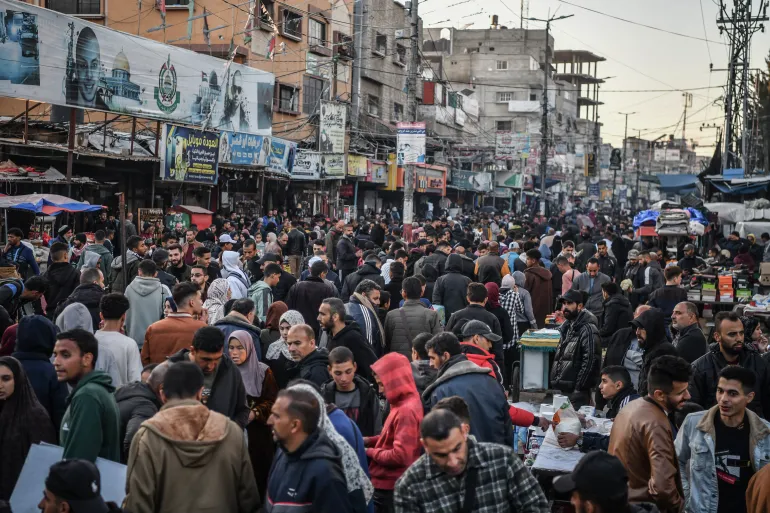UNICEF Executive Director, Catherine Russell has stated that the civilians in Rafah must be protected as they have nowhere to go.
“Rafah is one of the most densely populated places on earth, teeming with children and families, some already displaced many times by war in Gaza,” she said in a post on X.
“Some 1.3M civilians are pushed into a corner, living on streets or shelters. They must be protected. They have nowhere safe to go,” Russell added.
This came as Israeli forces have extended steadily southwards in Gaza, making Rafah the last key city that troops have yet to enter.
The air attacks on the city happen on daily basis and despite international alarm over the potential for carnage in the city, Israel says it is determined to extend its ground operation there.
Nadia Hardman, researcher at Human Rights Watch, disclosed in an interview that Palestinians are already struggling to survive in the small area where they have been pushed and displaced.
Hardman revealed that some of these people have been displaced up to 10 times since Israel’s war on Gaza began, adding that they are fearful of a ground invasion of the area.
“The one question they continue to ask is ‘where do we go?’ They have fled from areas that were once considered safe. Israel’s promise to provide safe passage must be analysed in light of the fact that it has consistently failed to do this,” Hardman said.
“This evacuation would be unlawful if it is ordered,” she added.
Moreover, Jamal al-Hams, a doctor at the Kuwaiti Hospital in Rafah, noted that an Israeli attack on the southern city would cause endless suffering for Palestinians.
“We are suffering a lot during these days because of the huge number of people who have been displaced from the northern and middle areas of the Gaza Strip towards Rafah,” he said.
“Secondly, we [already] have a huge number of injured people and patients with chronic diseases and acute illnesses who have been collected from all over the Gaza Strip [to Rafah]. We are suffering from the shortage of medical disposables and drugs – most of the antibiotics and analgesics are not available.”
“We have changed the admission beds to emergency beds. The Najjar hospital has a bed capacity of 70, and they changed it to 200 but that is still not enough,” al-Hams added. “There would be no place for more injured people. There will be no bed capacity not even for one because all hospitals [in the south] – the European, Najjar and Kuwaiti – are all at full capacity.”
“We are asking to stop war because it has continued for so long,” he added. “I don’t know what is coming but I am sure that we will suffer very much.”
Oman Joins In Criticism Of Israel’s Planned Rafah Invasion
Oman said that it categorically rejected Israel’s intention to invade the city of Rafah, which shelters hundreds of thousands of displaced Palestinian civilians.
“We warn of the serious repercussions of the continuation of the occupation in its indiscriminate aggression in the Gaza Strip and its plans to storm Rafah,” the Omani Foreign Ministry said in a statement.
“We appeal to the international community to take concrete measures to dissuade Israel from its arrogance and push it to cease fire and open the crossings,” it said.
In spite of the criticisms, the Israeli Defence Minister called for a deepening of military operations in Gaza.
Yoav Gallant said that it would bring Israel closer to a “realistic deal” for the return of the captives held in Gaza.
Around 130 captives are reported to be held by Hamas and other Palestinian armed groups.
READ ALSO: Ghana Battles Cocoa Crisis: Over 500,000 Hectares Lost to Swollen Shoot Virus Disease




















